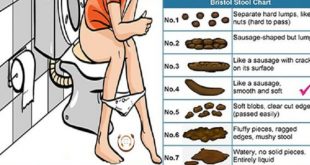
Looking back, Kate Locking says she knew something was wrong. In August 2007, the 23-year-old Sydney-based events coordinator was visiting her then-boyfriend Daniel in Newcastle when her instincts kicked in. The usually vivacious and energetic Kate felt tired and sore around her abdomen. Over the weekend, she became bloated and suffered bouts of excruciating pain. “My lower abdomen was so firm and heavy, the doctor thought I had appendicitis,” she says. “He told me to return the next day if symptoms progressed, which they did.”
After a second visit – in which the same doctor confessed that he “wasn’t sure what he was dealing with” – Kate was admitted to hospital, and a series of tests began.
“The pain was on the wrong side for appendicitis, so they ran several ultrasounds before it was concluded there was a mass on my left side – but they still didn’t know what it was,” she says. “By the Tuesday, I’d seen a general and colorectal surgeon, and then finally an oncologist and gynaecologist, who explained they thought the mass was located on my left ovary.”
Kate was booked into surgery the next Friday, by which time she says she looked nine-months pregnant and her left ovary had ruptured. “There was one-and-a-half litres of fluid in my abdomen and tumours had spread to my bowel and bladder. So along with the remains of my ovary, these tumours were also removed.”
Kate says she still finds it hard to fathom that in the space of only one week, she went from being a seemingly healthy young woman to a stage 2 ovarian cancer patient. “I was placed on four cycles of chemotherapy, and had to be treated for side effects like low blood pressure and DVT. But I think shock and adrenalin just kicked in and I was willing to do whatever it took.”
One of the lucky ones
Her diagnosis sounds dramatic, but Kate knows she’s one of the lucky ones. She was diagnosed with an “immature teratoma” or mixed germ cell tumour, a type of ovarian cancer that affects young women in their teens to early 20s. Although it’s an extremely rare form of the disease – it comprises only 1 per cent of all cases – the fact it spreads so quickly means it’s easier to pick it up sooner.
“Other forms of ovarian cancer grow more slowly and that’s why they’re a lot harder to detect,” Kate says. “Other women don’t have the obvious symptoms that I did [such as] the extreme bloating that happened within a week. As a result, most cases are diagnosed in stage 3, when the cancer has progressed and is much more devastating.”
What makes finding ovarian cancer even harder is the absence of an early detection test. There’s also the fact that misdiagnosis is common, something Kate admits could easily have happened to her. “I’ll forever be grateful for the doctor who put his hand up and said, ‘I’m not sure what this is. I need to pass you onto someone who does.’ He could have easily misdiagnosed me, so I’m very lucky in that sense as well.”
Luck is a thread that runs through Kate’s story. After four rounds of chemotherapy – each a week-long treatment that took place over a period of four months – her tumour count returned to normal and her check-ups stretched out to monthly, six-monthly and eventually yearly. She’s now past her five-year mark and is considered cancer-free.
The gift of a family
The other obvious blessing in her life now is her young family. Daniel proved to be a huge support through Kate’s illness, despite the fact they’d only been dating for six months at the time of her diagnosis, and the couple married in 2011. Then, in 2012, she had another unexpected win in the form of their son, Ollie, who’s now 22 months old.
Having a child, especially one who was conceived naturally despite Kate only having her right ovary intact, is something she knows a lot of survivors of ovarian cancer don’t get to experience.
“I always thought I’d wait until my 30s to have children, but when the oncologist told me the operation and treatment could affect me having children, it made me more determined,” Kate says. “The fact we conceived Ollie naturally is an even bigger blessing – it wasn’t something we expected to happen easily.”
Kate is now on a mission to educate others about the disease and often retells her story in her role as a guest speaker for the Ovarian Cancer Research Foundation. She’s determined to use her status as a “survivor” to provide a voice for those women who haven’t been as fortunate in their battle. Her key message is simple: to trust those instincts that ultimately saved her and to help men understand the disease, too.
“Women are less likely to go to the doctor because they put everyone else first, so it’s crucial for men to know the symptoms so they can look out for their wives, their mothers, their aunties and their sisters.”
What you can do
Currently, one Australian woman dies from ovarian cancer every 10 hours. There’s no early detection test and no cure. You can help change this devastating statistic by going to your local Witchery store or visitingwitchery.com.au to purchase a white shirt from its White Shirt Campaign (on sale tomorrow). Choose from seven styles for women and two styles for men and 100 per cent of the gross proceeds will go straight to the Ovarian Cancer Research Foundation. This money will go directly to support vital research initiatives that will hopefully result in the development of an early detection test.
Source: bodyandSoul
 We are sharing information for knowledge. Presented by. SocialDiary.Net
We are sharing information for knowledge. Presented by. SocialDiary.Net



